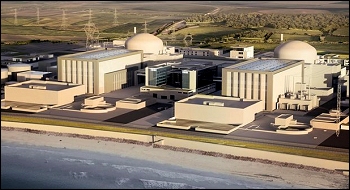National newspaper reports over the weekend state that a UN environmental committee has warned that there is “profound suspicion” that the UK failed to properly consult neighbouring countries, including Norway and Spain, over the possible environmental impact that Hinkley Point C could have on them.
In a letter to the Department for Communities and Local Government, Vesna Kolar Planinsic, who chairs the UN’s implementation committee on the Convention on Environmental Impact Assessment, said that the UK’s only consultation efforts amounted to “informal exchanges” with Ireland and Austria. The department has been ordered to send a delegation to face the committee in December.
Separately, Joan Walley, who chairs Parliament’s Environmental Audit Committee, has written to the European Competition Commissioner, Joaquin Almunia, to help an EU investigation into state aid for the two new reactors at Hinkley Point.
This inquiry is considered the last big obstacle preventing the construction of the new power plant, which would meet around seven per cent of the UK’s energy needs from 2023, enough to supply nearly five million homes.
The French energy giant EDF could only be persuaded to build the plant if a minimum price was guaranteed for the electricity generated from Hinkley C, thereby ensuring a return for shareholders worried about the enormous upfront construction costs. This minimum, known as the ‘strike price’, would be covered through increases in consumer bills.
The Government has argued that the deal is needed to ensure Britain’s energy supply and is not really a subsidy, but Mr Almunia fired off a toughly worded 70-page critique at the end of January, warning that the strike price could give EDF excess profit. He said this could make the deal illegal under EU competition law.







